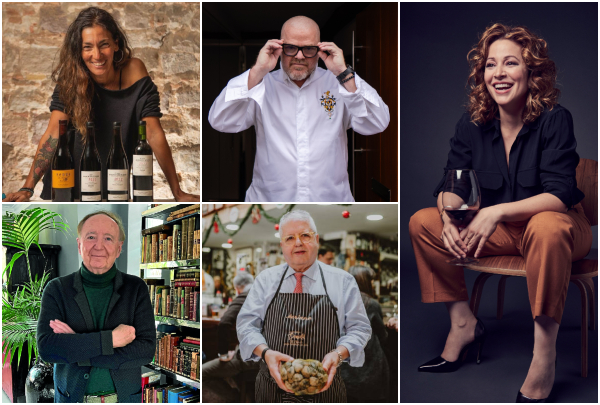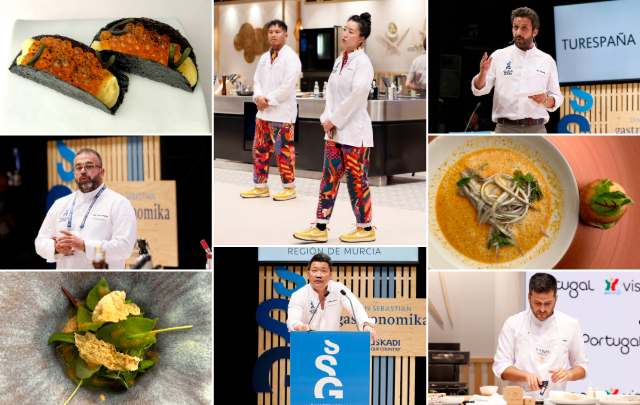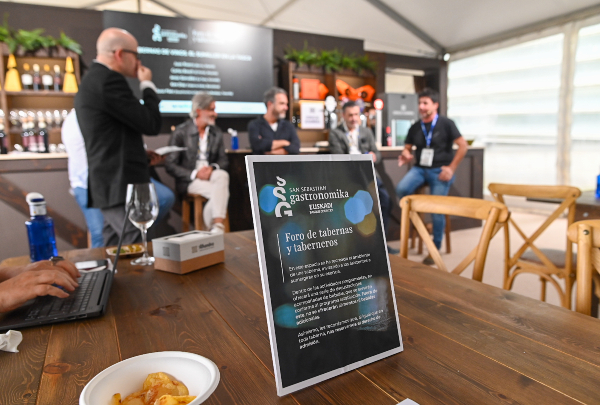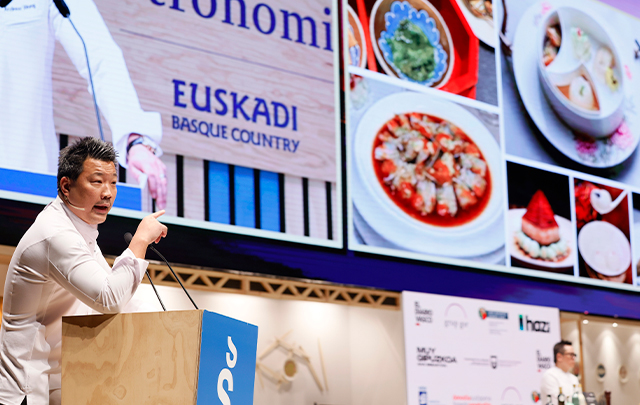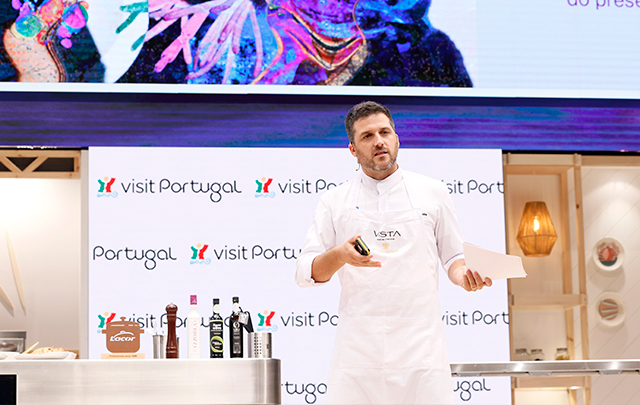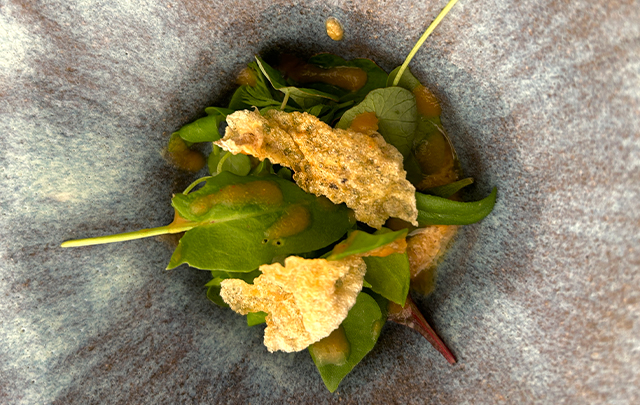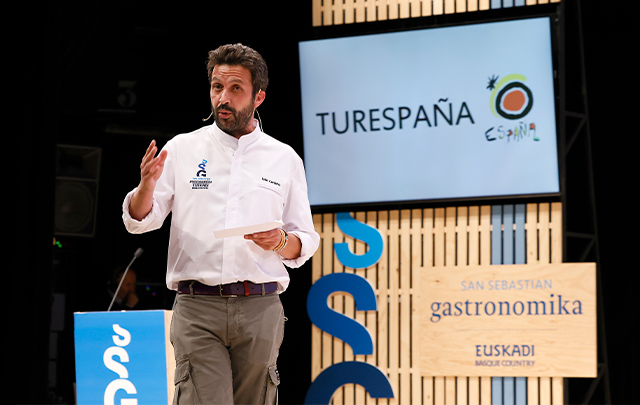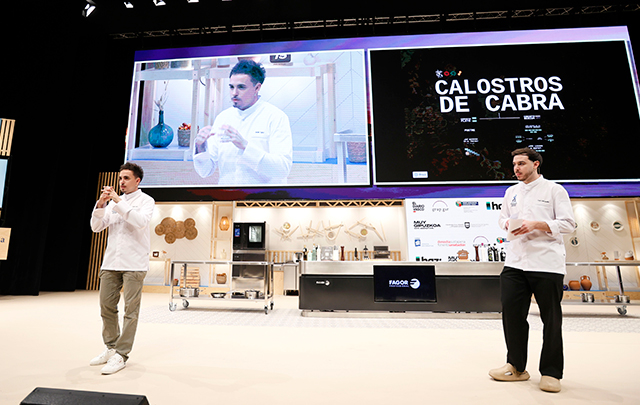News
The 1st Forum of Taverns and Tavernkeepers dedicates its last day to themed bars and leaves with another full house
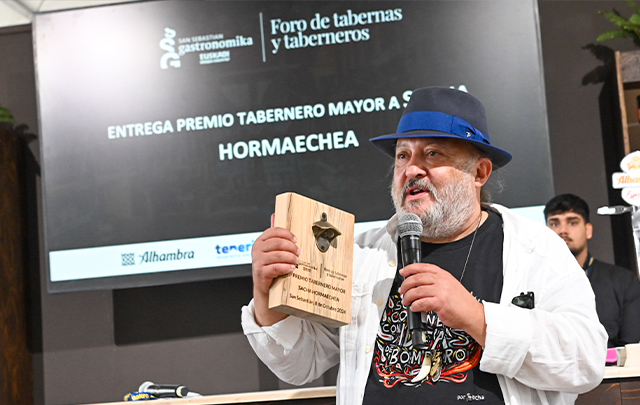
The third and last day of the Taverns and Tavernkeepers Forum of San Sebastian Gastronomika had as its great protagonist an unrepeatable and charismatic restaurateur, Sacha Hormaechea, chef and soul of Sacha, Botillería y Fogón, who was named Mayor Tavernkeeper of San Sebastian Gastronomika 2024. All good tavernkeepers are like you in some way, but you are like none of them. Thank you, Sacha, for enlightening us', said the general director of Vocento Gastronomía, Benjamín Lana, when he presented him with the award, which Sacha dedicated 'to his fellow true tavernkeepers and, in general, to all the people for whom the bar is a point of support in their lives'.
The theme of the day focused on the analysis of the reality and the challenges of different models of taverns. The establishments that are legendary for their products were represented by Paco Martín, from the FM bar in Granada, famous for its seafood; César Álvarez, from A Fuchela, temple of the Galician octopus in O Carballiño; and Carlos Castelló, from Piripi, Alicante, one of the bars with the largest and best variety of tapas on the Levante coast. In this sector of bars based on the excellence of the raw material, the increase in the price of products such as seafood and fish, and the problem of shortages caused by this increase in price, is the main concern. "We used to bring in huge langoustines. Now we have to make do with smaller ones, but what I can't do in FM today is not to have shrimp, squid and dried octopus, which are our emblems,' he said when the moderator of the forum, restaurateur and tavern owner Alberto Fernández Bombín, suggested the possibility of opening up to new products.
Nowadays you can no longer live on a single dish,' says César Álvarez. 'We have opened up and completed our menu with other products, even though we are an octopus restaurant'. For his part, Carlos Castelló acknowledged that Piripi's resilience in these times of soaring seafood and fish prices is 'to have many other specialities to offer. In our case, seafood increases our turnover, but our strength is our variety'.
Gastronomic taverns, or 'neo-tavern', were also discussed. The format was analysed by Ricard Camarena, representing his Bar X (Valencia); José Álvarez, chef at La Costa and La Barra de José Álvarez (El Ejido); Nacho Solana, of the restaurant La Solana and the bar La Bien Aparecida, in Ampuero (Cantabria); and Gorka Txapartegi, of the restaurant Alameda and the Taberna del Alameda. In all cases, the chefs combine Michelin-starred restaurants with more popular formats that allow them to "stay in touch with the local public", as Solana puts it; "offer quality but more affordable and fun bites", according to José Álvarez, or "satisfy a clientele that would not connect with gastronomy", in Txapartegi's words.
For Ricard Camarena, the tavern offers a flexibility that allows him to attract new clientele. 'At the end of the day, we have businesses and we want to reach as many people as possible, but quality is still the currency in all of them'. Incidentally, all four participants rejected the name 'neotaberna' for modern bars. 'If I say in my village that I have a neotaberna, nobody comes in', laughed Solana. 'The word bar is much better,' added Álvarez, and Ricard Camarena concluded: "Restaurants are also evolving, and nobody calls modern restaurants neo-restaurants".
There are bars and taverns that are heritage sites, just like the historical buildings and monuments of cities. They have been part of the life of a town or city for generations and eventually become famous places beyond their borders. The challenge for these places is to continue to satisfy their traditional clientele and to welcome tourists and visitors. Miguel Cabezas, of Casa Pepe de la Judería, said that Casa Pepe is "an institution for the community that we have tried to modernise without losing its essence. Now we welcome the grandchildren of old clients, but also tourists.' 'I go to Cordoba and I go to the mosque, but I also want to go to Casa Pepe,' said Tenerife journalist Francisco Belín, who moderated the talk. 'The identity of tascas is very important, the relationship that is created between the customer and the tasquero, that is the most important thing,' said Pepe Torres, owner of Bodegas Castañeda, an institution in Granada that opened in 1927. 'We have lived with tourism for many years. We welcome the lifelong parishioner who comes to drink his vermouth and, logically, the tourist, and in our case the two publics mix very well,' he said.
There are taverns that achieve great gastronomic heights despite not having a kitchen. Great representatives of ‘cooking without fire’ such as Enrique and Carlos Valentí (Hermanos Vinagre, Madrid), Joaquim Pérez Sanz (Quimet, Barcelona) and Javier Cabrera, from Astrolabio (Valladolid) talked about the advantages and disadvantages of bars that base their gastronomic offer on preserves, cold meats, cheeses, pickles and raw products. ‘In principle, it may seem easier to do what we do, but not having a fire forces you to think about everything a lot more’, said Javier Cabrera, for whom opening a bar without a kitchen was a personal gamble. ‘Nobody believed in me except my wife,’ he added.
Enrique and Carlos Valentí started a place without a kitchen and without a production kitchen, and they already have several places. 'We have a production kitchen, although our speciality is cold cuisine,' they said. For Joaquim Pérez Sanz, "ours is a kind of solid cocktail bar. We have a bar and we make combinations. Some of them seem very modern, like salted fish with cheese and fruit, but they are the food of the grape harvests of a lifetime'. 'To do what we do, of course you need chefs', added the Valentí brothers, who, like their guests, are trained chefs with careers in conventional restaurants, although they added: 'People don't come here for the food, but because they enjoy themselves. That's the real key.
Sacha Hormaechea, Juanjo López, from La Tasquita (Madrid), Pepe Solla, from Casa Solla, and Edorta Lamo, from Arrea!, concluded the day by talking about "restaurants with a tavern soul". They agreed that the human aspect and the desire to establish direct communication with the customer is what defines this type of business. Sacha Hormaechea invited the many bar and tavern owners who filled the room to speak and the conversation ended with an emotional, heartfelt and nostalgic love song to bars: 'The places are disappearing because we stop going. If we feel that these places are part of us, we must support them," Hormaechea asked. Juanjo López also called for the support of the institutions with administrative measures to help them survive.

